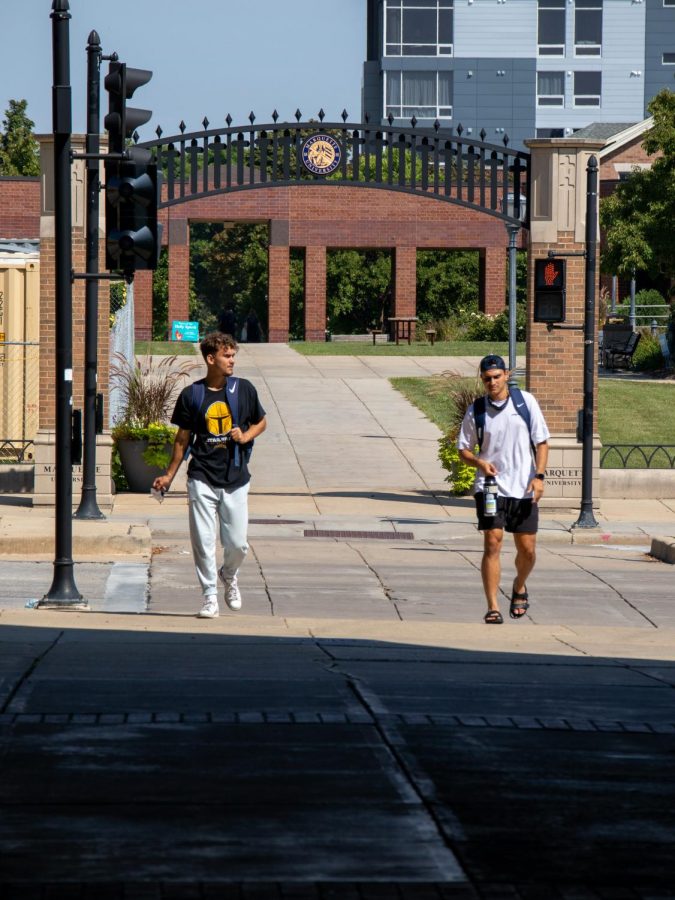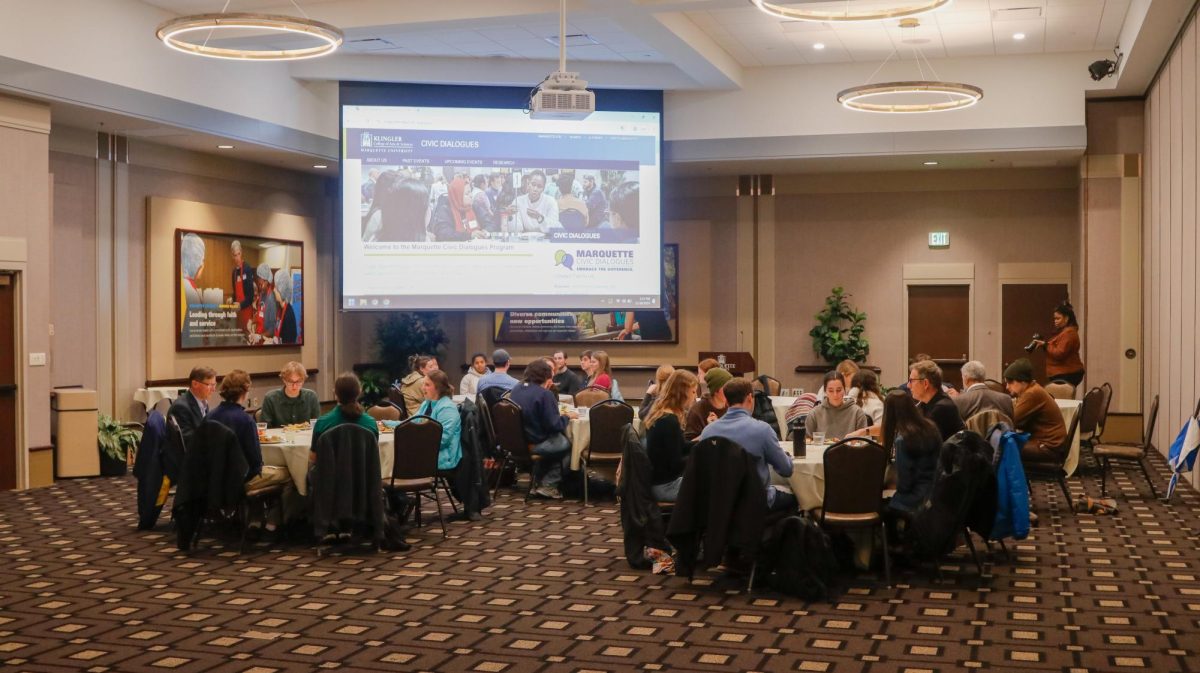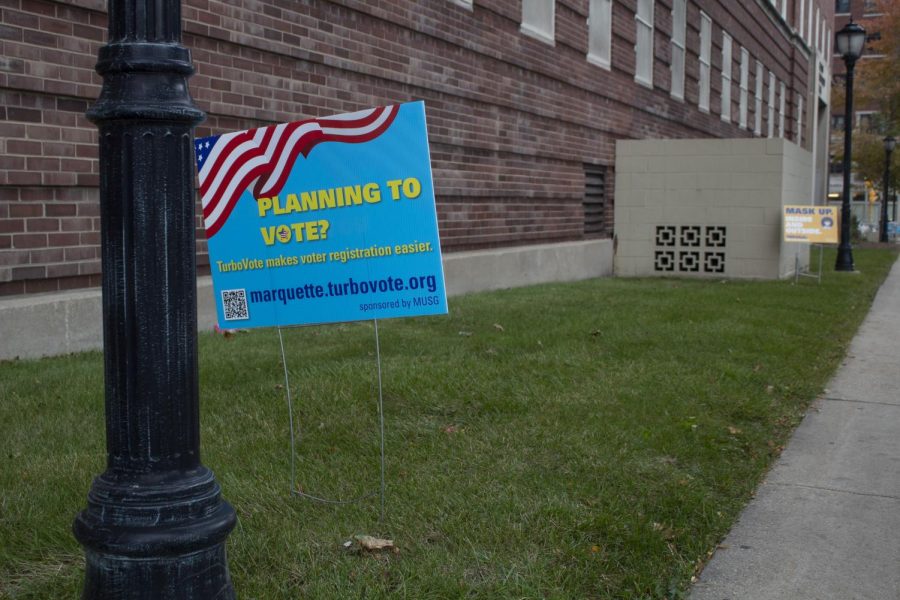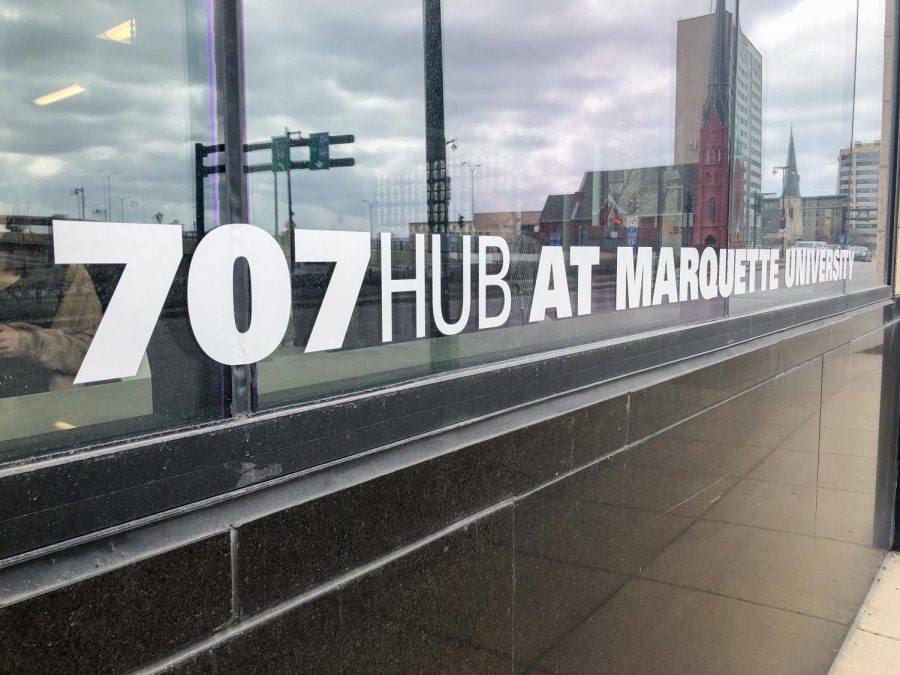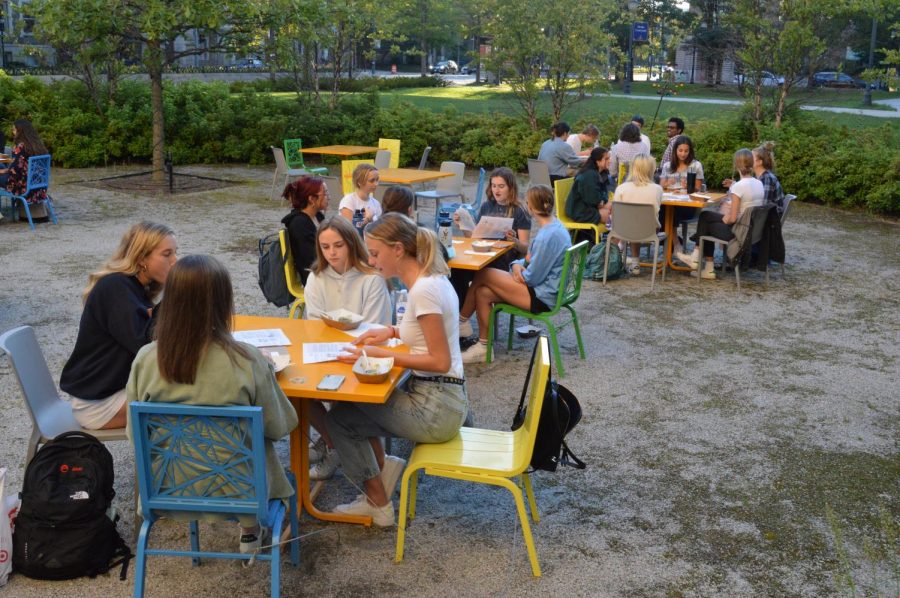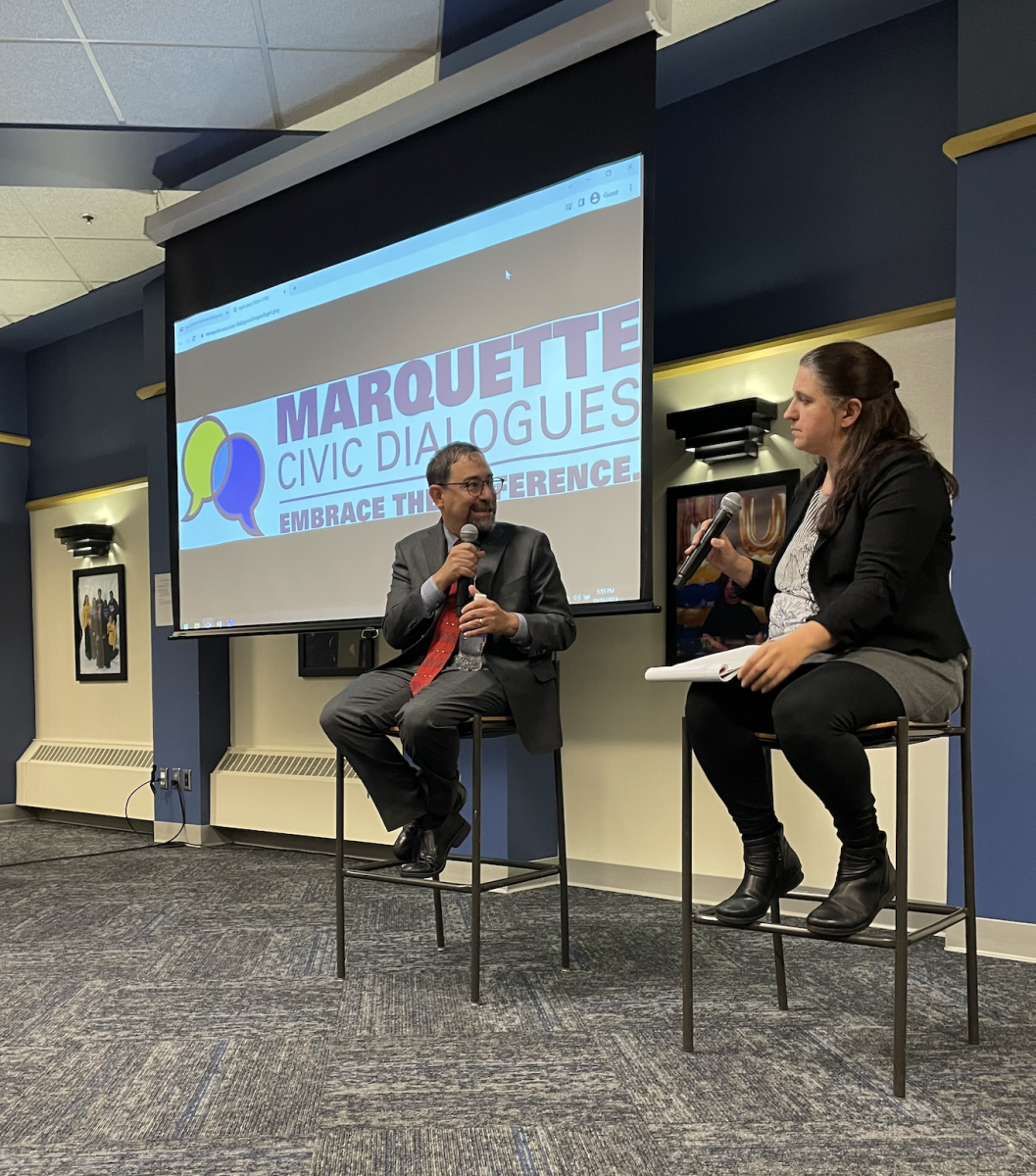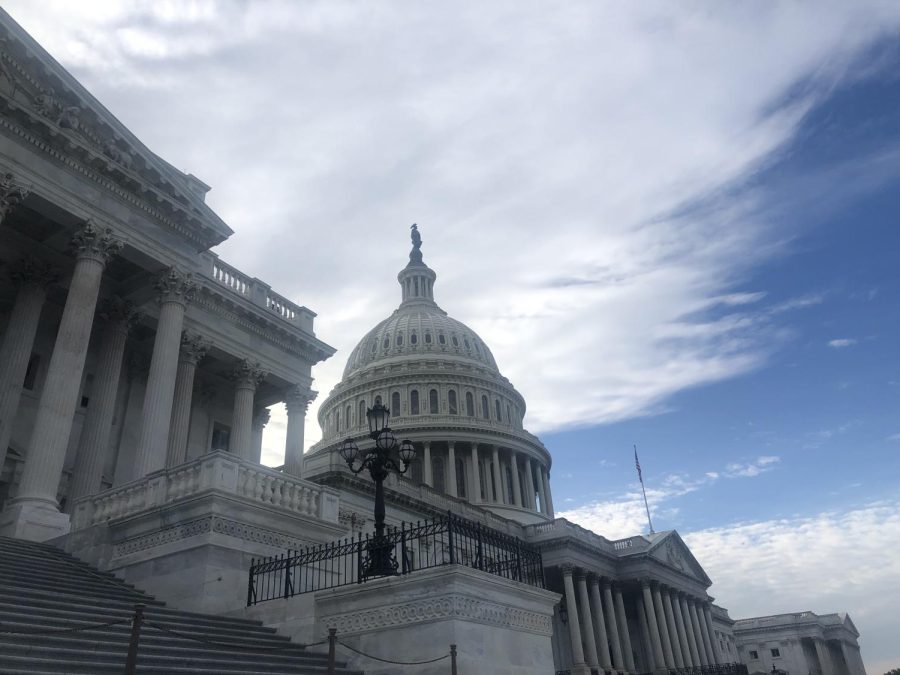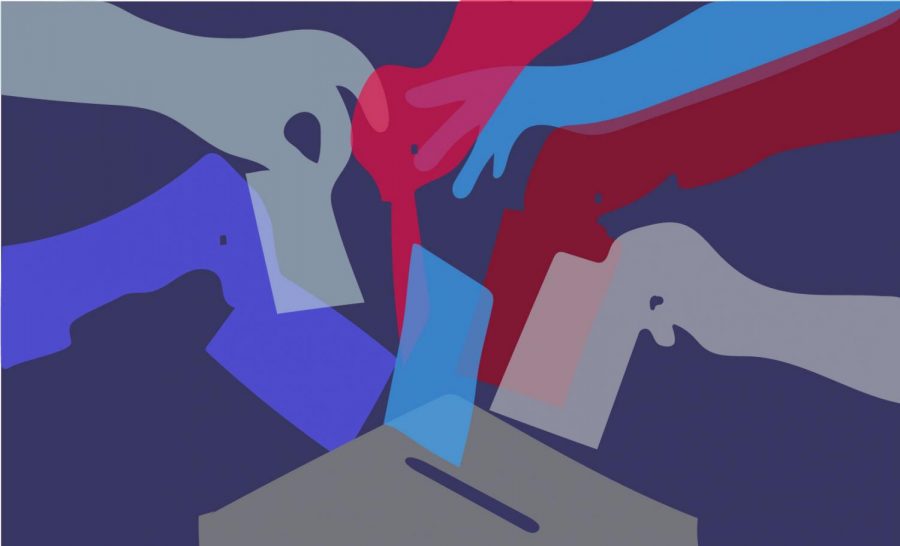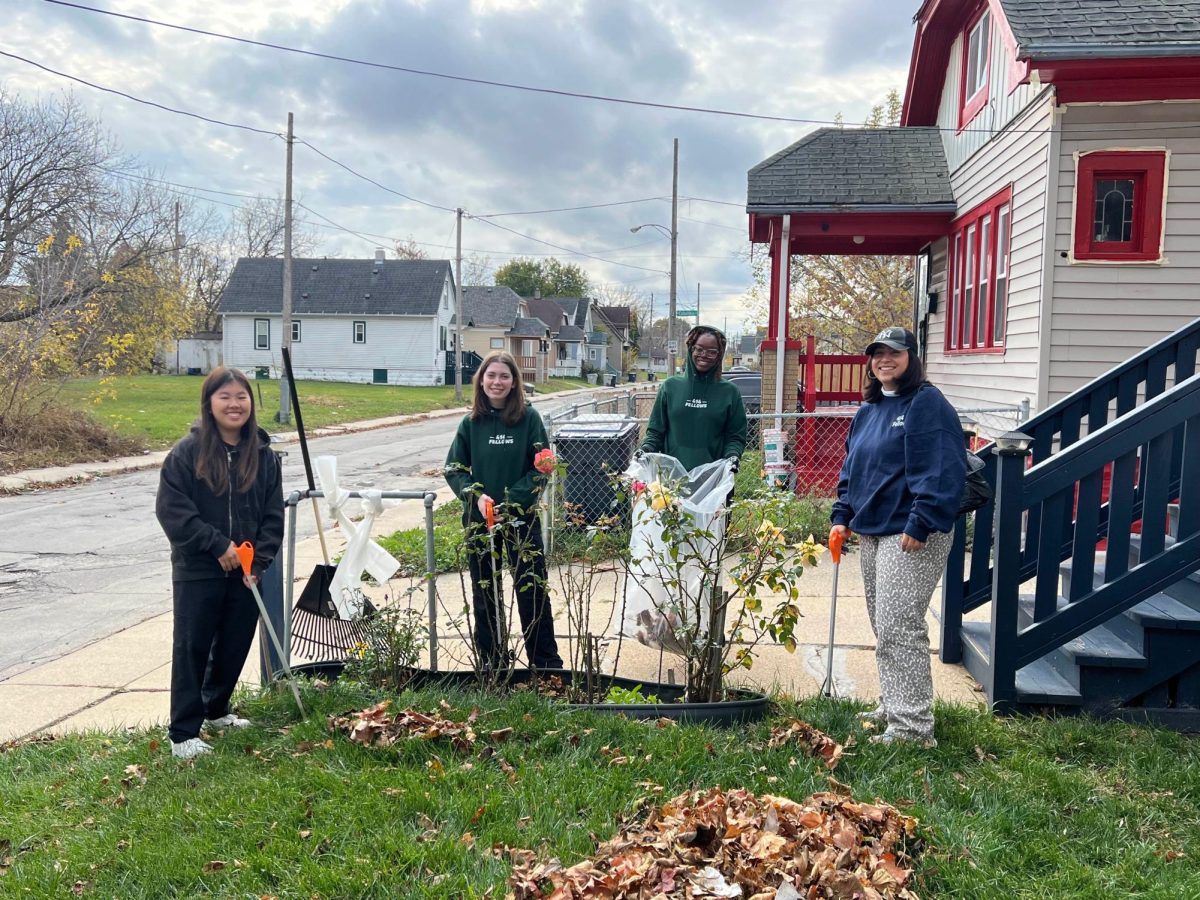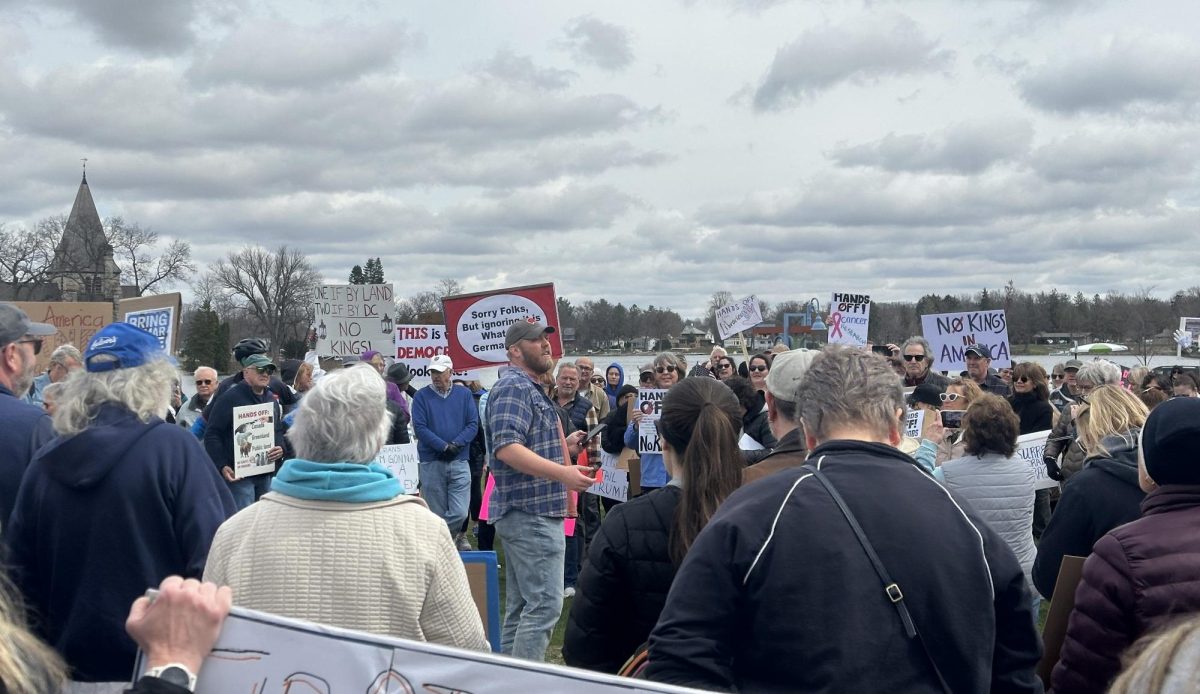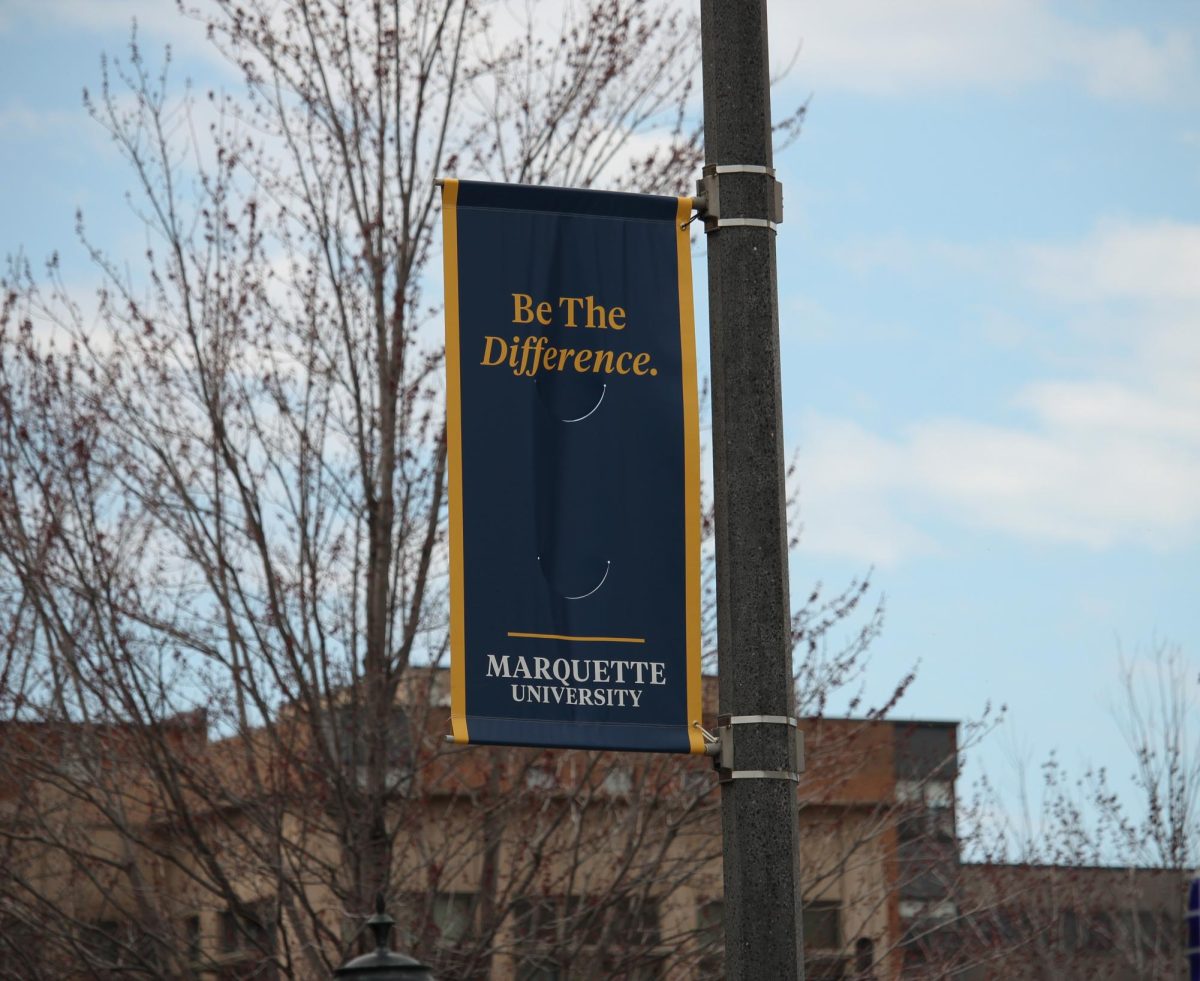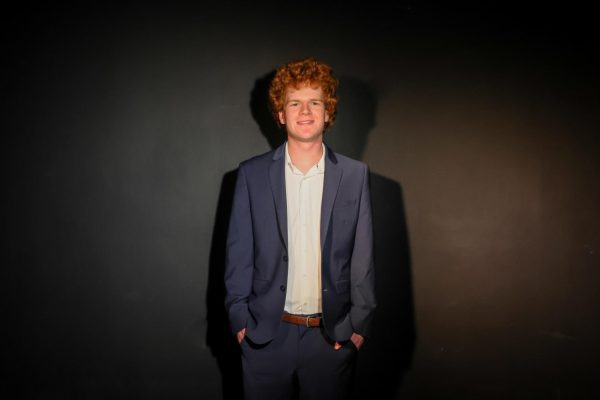Civic Dialogues, a program hoping to unite students through discussion on divisive political issues, held an event on April 28 about immigration.
“Immigration is one of those issues that is really controversial and that people aren’t super informed about but have a lot of things to say,” Drew Staser, a first-year studying political science, said.
To kick off the conversation, Julia Azari, the program’s director, introduced the two panelists who would be providing context for students on immigration.
Panelist Alison Efford, an associate professor of history, emphasized how difficult it is to legally migrate to the United States; there are only a few hundred thousand spots available under the Immigration Act of 1965.
The federal government first prioritizes applicants who have family members who are American citizens. The government also, to a lesser extent, emphasizes likely economic contributors, Efford added.
Panelist Noelle Brigden, an associate professor of political science, discussed three key things that she wished people would know.
“One is [that] it has never been illegal to cross the border for the purpose of petitioning for asylum,” she said.
A “petition for asylum” is akin to asking the government to allow you to remain in the United States because your life is significantly threatened in your country of origin.
Brigden also explored how countries across the world have increasingly tightened traditionally respected migration rules, many more significantly than the United States. She asked that students take a global perspective on immigration, noting that it is not just an American debate.
Finally, Brigden observed that American immigration policy has grown tighter since the 1990s, during both Republican and Democratic administrations.
“However shocking to our conscience Trump’s actions might be … these actions are precedented,” Brigden said.
After the panel discussion, students enjoyed pizza and discussion facilitated by students trained in promoting civic dialogue. Staser was one of those facilitators.
“I view my role as trying to make sure that there’s a productive discussion, … [one] that everyone can sort of come away from the conversation having understood other people’s points of view,” Staser said.
Gabriel Marotto, a sophomore in the College of Arts & Sciences, attended the event on April 28 because of recent headlines surrounding national deportation efforts, such as the sudden drop in estimated border crossings and the deportation of Kilmar Abrego Garcia.
Marotto was particularly appreciative of the event because of a constructive, respectful debate he had with another student in his discussion group.
“I would not think people take that approach to immigration, so seeing it firsthand is always a good thing,” Marotto said.
Some tables discussed the importance of perspective and values, attempting to understand how one’s life experience can shape one’s views on immigration.
“My dad is from Connecticut; my mom’s from Minneapolis. … I grew up in North Carolina. I don’t think moving around is that strange of a concept,” Marotto said. “I feel like a lot of people look at immigration and immigrants as [an] ‘other,’ but [they’re] really not.”
Even though there are no remaining Civic Dialogues events this academic year, Staser has some recommendations on how to have respectful dialogues at home. “When I approach someone who I disagree with on a certain issue, I take their arguments in good faith,” he said.
“At the end of the day, pretty much everyone wants the same thing. We might have different conclusions about how to get there, but most Americans agree … [that] we want a productive immigration system,” he added.
More Civic Dialogues events are expected in the coming fall semester under the direction of Azari. Students interested in these events can reach out to her at julia.azari@marquette.edu. An email newsletter sign-up is also expected to be distributed to students soon.
This story was written by JJ Vander Loop. He can be reached at jj.vanderloop@marquette.edu.


